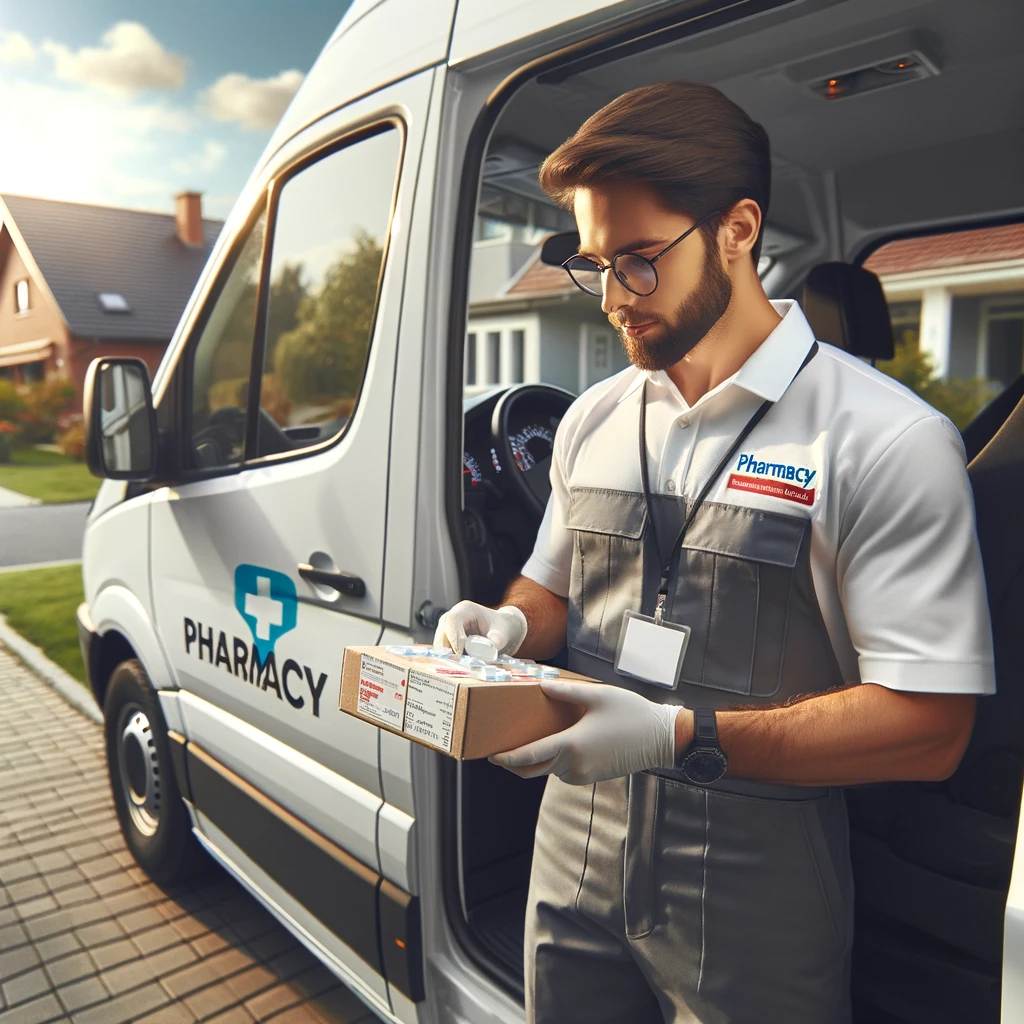Medication delivery jobs have become increasingly important in the healthcare industry, particularly in the wake of rising demand for home delivery services. This role involves the distribution of prescription medications and medical supplies directly to patients’ homes, pharmacies, or healthcare facilities.
As healthcare continues to evolve, especially with the increased focus on telemedicine and online pharmacies, medication delivery jobs are critical in ensuring patients receive their medications safely and promptly.

What Are Medication Delivery Jobs?
Medication delivery jobs encompass a range of responsibilities, primarily focusing on transporting and handling medications from pharmacies to patients without compromising the safety and integrity of the products. Employees in this sector are typically required to manage logistics, maintain communication with pharmacies and recipients, and ensure compliance with health and safety regulations.
Key Responsibilities in Medication Delivery
- Transporting Medications: The primary duty is to transport medications from pharmacies to the designated recipients. This involves careful handling to ensure that the medications are not tampered with or exposed to conditions that might alter their effectiveness.
- Compliance and Safety: Delivery personnel must adhere to all regulatory guidelines related to the handling and transport of pharmaceuticals. This includes maintaining the proper temperature for medications that require refrigeration and ensuring secure packaging.
- Customer Service: Delivery drivers often interact directly with customers and must provide excellent service, including handling prescriptions with discretion and responding to any patient queries regarding their delivery.
- Record Keeping: Accurate record-keeping is essential to track deliveries and manage inventory. Delivery personnel must update delivery records and manage receipts or signatures collected from patients or healthcare professionals upon delivery.
Qualifications and Skills Required
- Educational Background: A high school diploma is generally sufficient for entry-level positions, but some knowledge of pharmacology could be beneficial.
- Driving License: A valid driver’s license and a clean driving record are imperative since the job primarily involves driving.
- Attention to Detail: Precision is crucial when handling medications, particularly in ensuring that the right medication is delivered to the right patient and in the correct dosage.
- Communication Skills: Effective communication skills are essential for interacting with pharmacy staff and patients, as well as for resolving any delivery issues that may arise.
Challenges Faced in Medication Delivery Jobs
- Navigating Regulations: The pharmaceutical industry is highly regulated. Delivery personnel must be knowledgeable about the laws and regulations affecting the transportation of medical products.
- Managing Emergencies: Occasionally, medication deliveries can be urgent. Workers need to be efficient and capable of handling time-sensitive situations effectively.
- Privacy and Security: Handling personal patient information and expensive medications requires a high level of trust and integrity, as breaches can have serious consequences.
Advancements and Technology in Medication Delivery
Technological advancements have significantly impacted how medication deliveries are managed. The integration of GPS for route optimization, temperature-controlled transport units, and real-time tracking systems enhances efficiency and safety in the delivery process. Furthermore, apps and online platforms now allow patients to schedule and track their medication deliveries, providing greater transparency and convenience.
The Future of Medication Delivery Jobs
The future looks promising for medication delivery jobs, with an increasing trend towards mail-order pharmacies and online pharmaceutical services. The ongoing global health crisis has underscored the value of having medications delivered directly to one’s doorstep, potentially expanding the scope and demand for these services.
Conclusion
Medication delivery jobs are a vital part of the healthcare system, offering not only convenience but also a lifeline for many who are unable to visit pharmacies in person. As the industry continues to grow and evolve, these roles will adapt to incorporate new technologies and methods, ensuring that the delivery of medication remains both efficient and secure. This field offers a rewarding career path for those interested in a blend of healthcare, customer service, and logistics.




